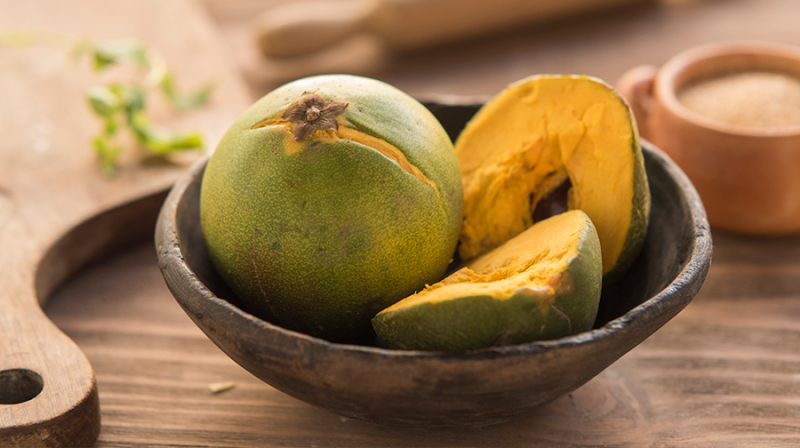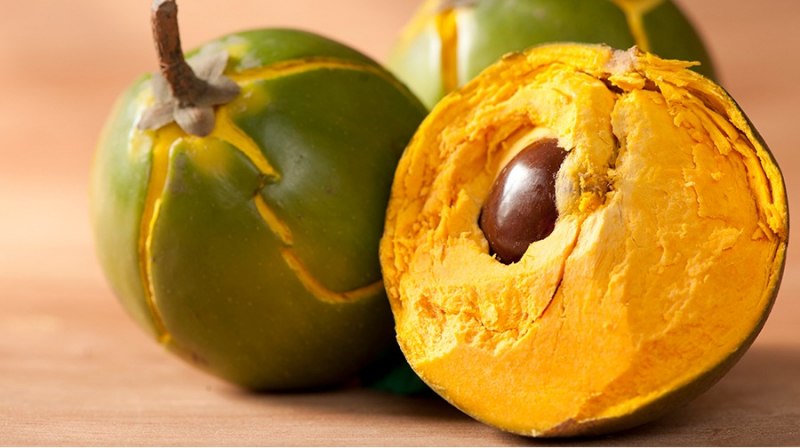Lúcuma

Lucuma, botanically classified as Pouteria lucuma, is a rare, ancient fruit belonging to the Sapotaceae family. Lucuma is a national fruit of Peru. This distinctive fruit originates in the Andean valleys of Chile, Peru, Bolivia, and Ecuador. You can find lucuma images on ceramics at burial sites of local people in coastal regions in Peru. The greyish-brown, fissured bark of this evergreen tree, which can reach a height of 20 meters, secretes a milky white fluid. Short, brown hairs cover the petioles and the ends of branchlets. The mature fruit is globose-shaped, 6-12 cm long, glabrous, and russet to yellow. The pulp is bright yellow, and one to several glossy, dark brown, 1.8 to 3.5 cm long seeds may be present.
It is perfect as an ingredient in baked pastries and ice cream because of its flavor, which is best described as somewhat sweet and resembling maple. Lucuma was first known as the "gold of the Incas" and was revered as a fertility symbol. Lucuma is an excellent source of fiber to regulate the digestive tract and a good source of vitamin C, which is an antioxidant that strengthens the immune system while providing anti-inflammatory properties. The fruits also contain B vitamins, potassium, phosphorus, iron, and magnesium.











